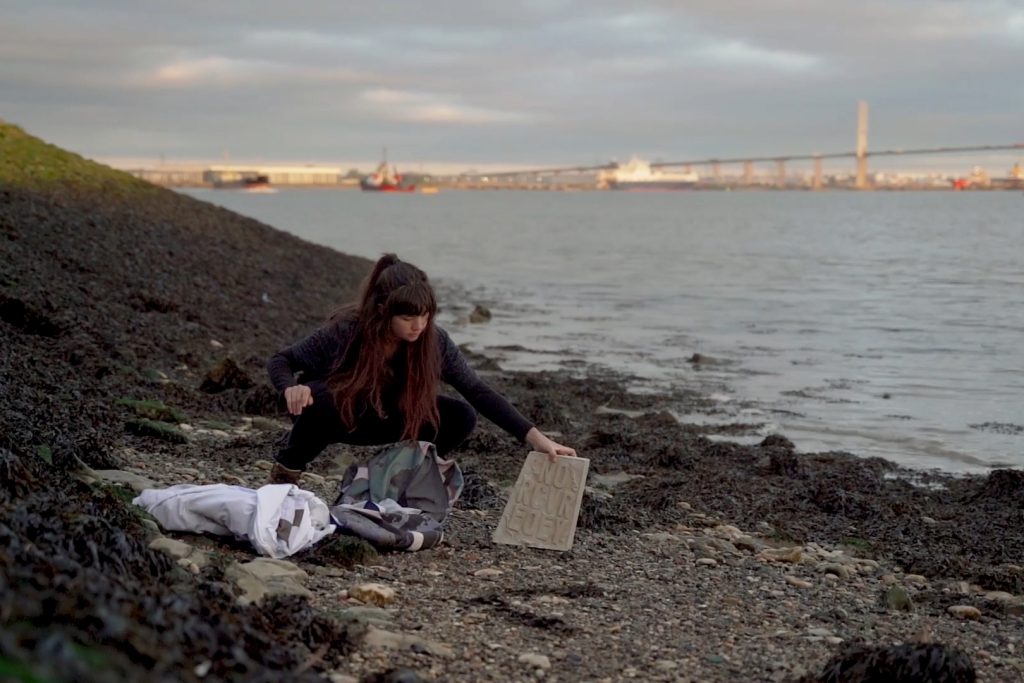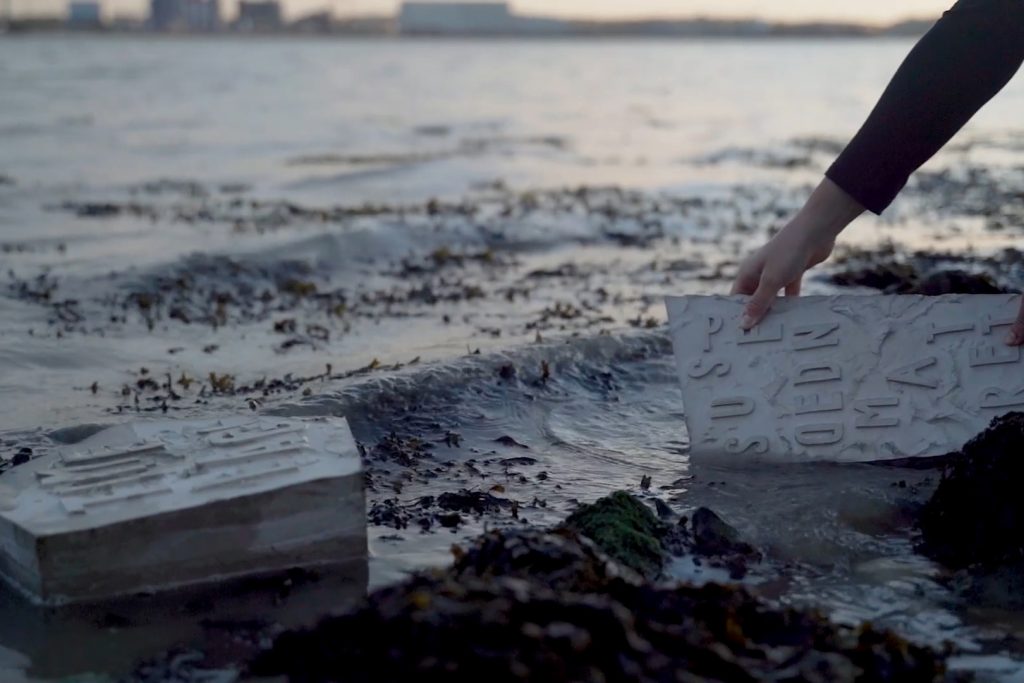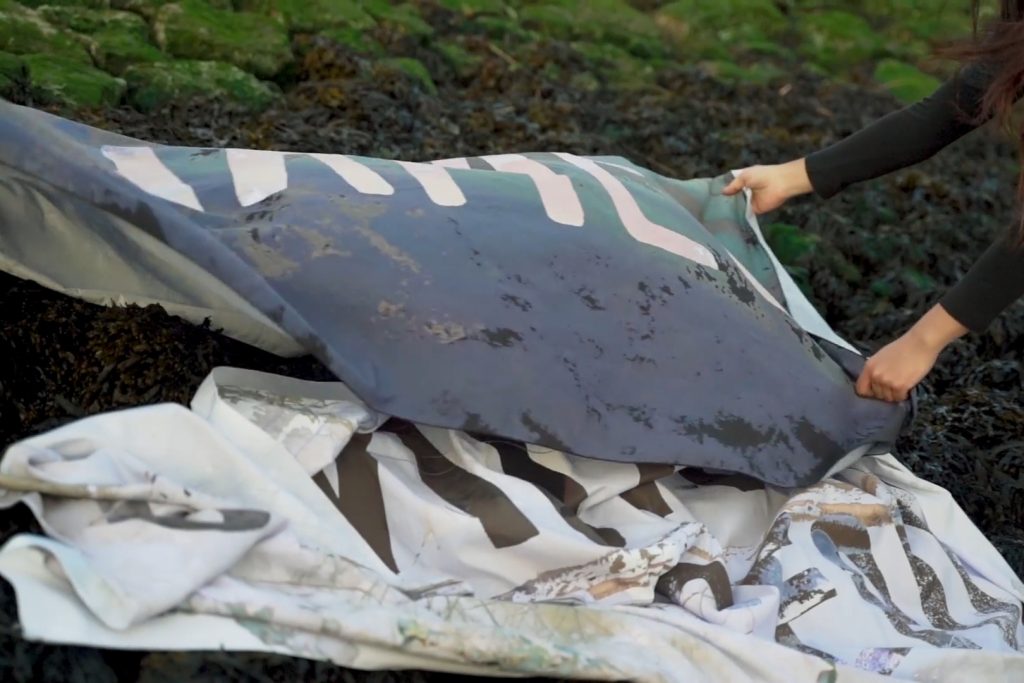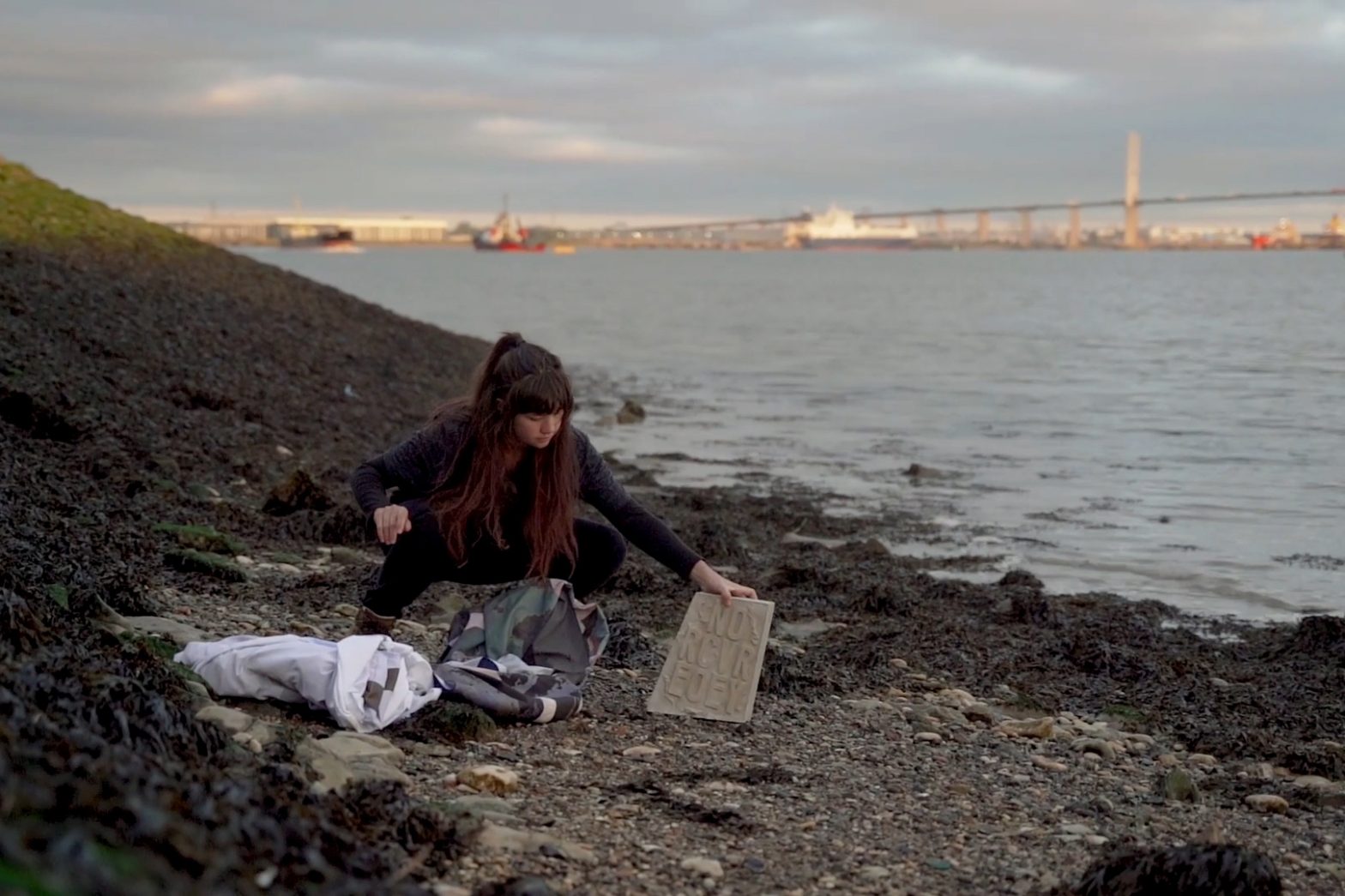Artist Lydia Brockless responds to Ebbsfleet, its communities, and history

Between January and June, four artists undertook micro-commissions, researching and responding to Ebbsfleet and its communities. Through these different projects, the artists explored the plans for the new garden city, worked with local people, and researched the histories of the area.
The outcomes of these micro-commissions were displayed publicly as part of Estuary 2021 – a large-scale arts festival celebrating the lives, landscapes, and histories of the Thames Estuary.
Lydia Brockless started by looking at the materials of Ebbsfleet. What is it made of, what is underneath it? She’s long had an interest in geology and geomorphological processes, and what they can tell us about our experience of time and change.
Lydia found that every time a geological core sample is taken for a building project, or a new road – a borehole data sheet is generated; these are functional texts but they read as rich, poetic lists of materials, with descriptions of colour and texture.
She also found poetry in the technical terms used in these reports, an example being the phrase ‘Made Ground’ – referring to the layers of human-generated matter which appear frequently in the contents of these boreholes, illustrating perfectly our own contribution to the geological makeup of this area.
Taking visual and material clues from a long walk taken around the area early in April, Lydia drew on her interest in the interaction between text and object, and the idea of the ‘Geology of an Image’ to produce four concrete sculptures, two digitally-printed fabric banners and a series of texts, which were documented in a film produced with filmmaker James Eades.







